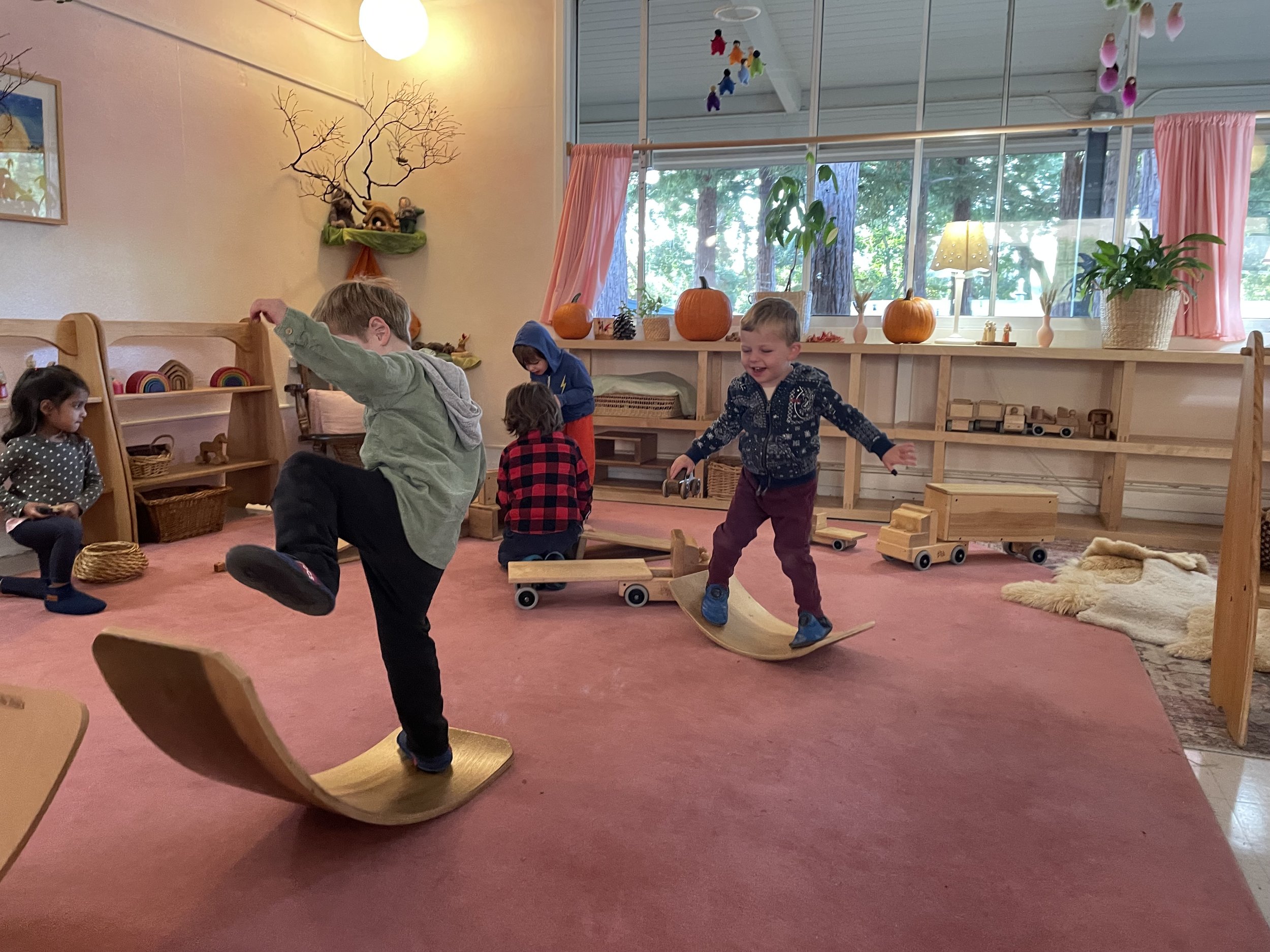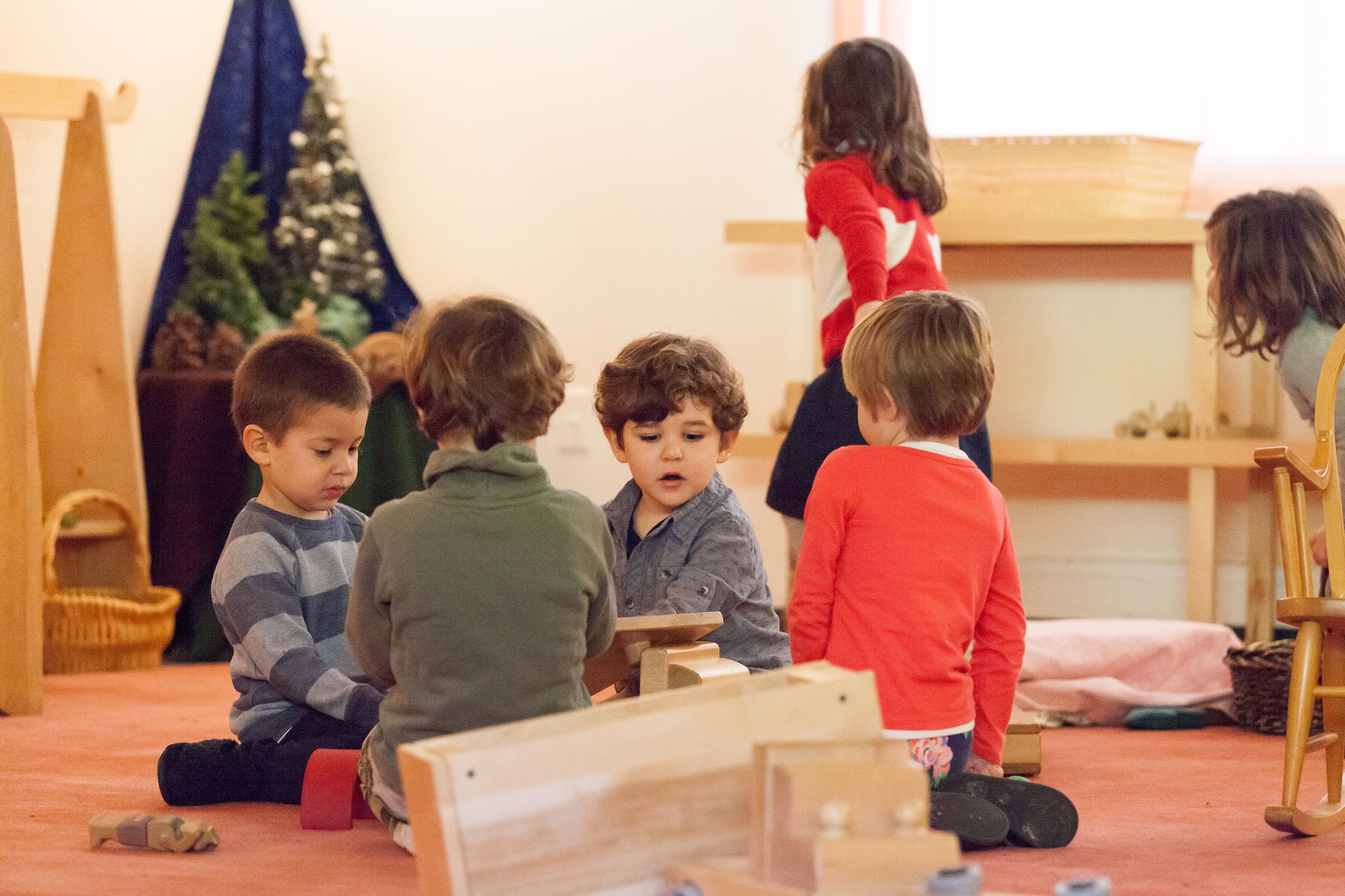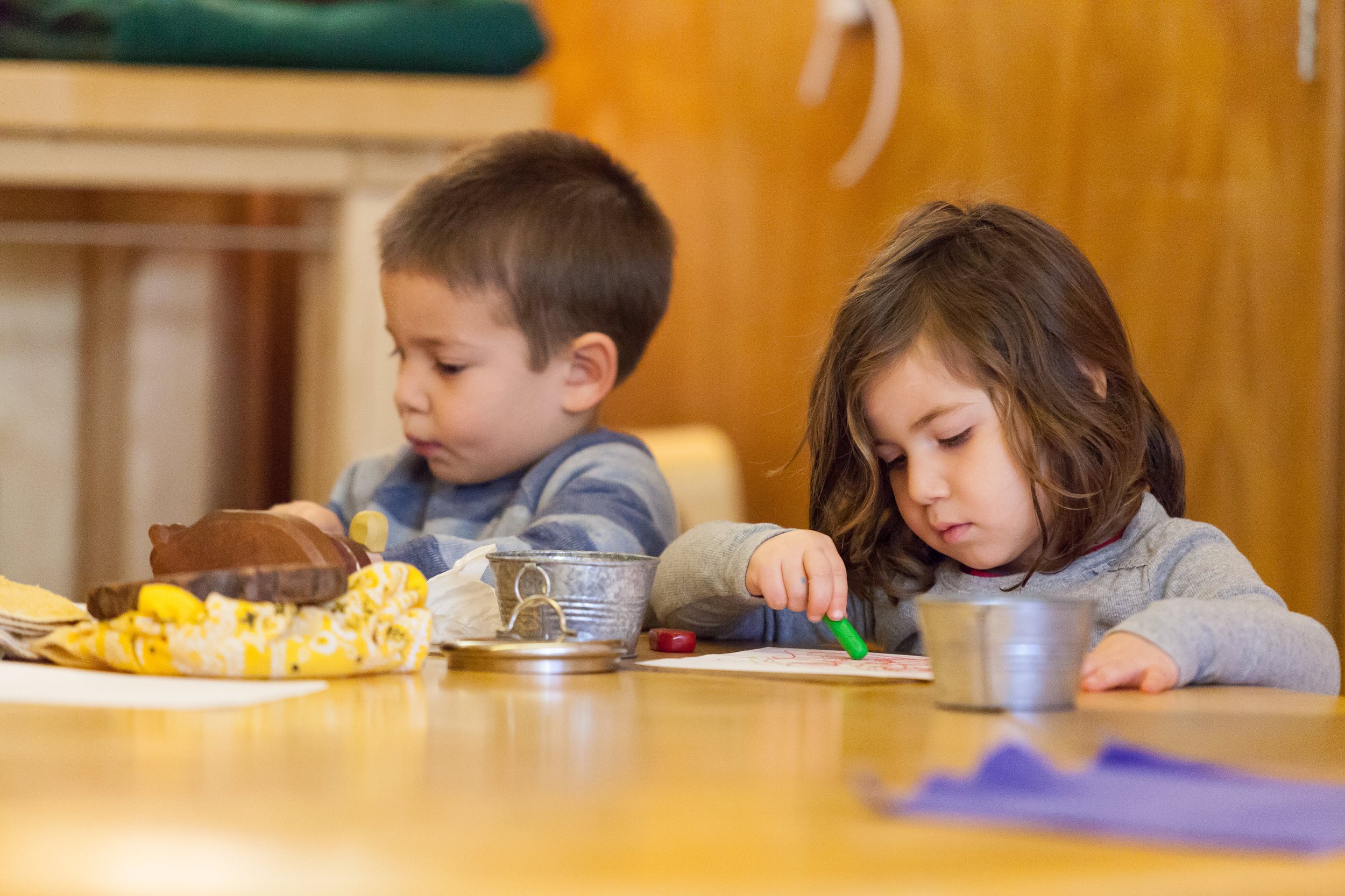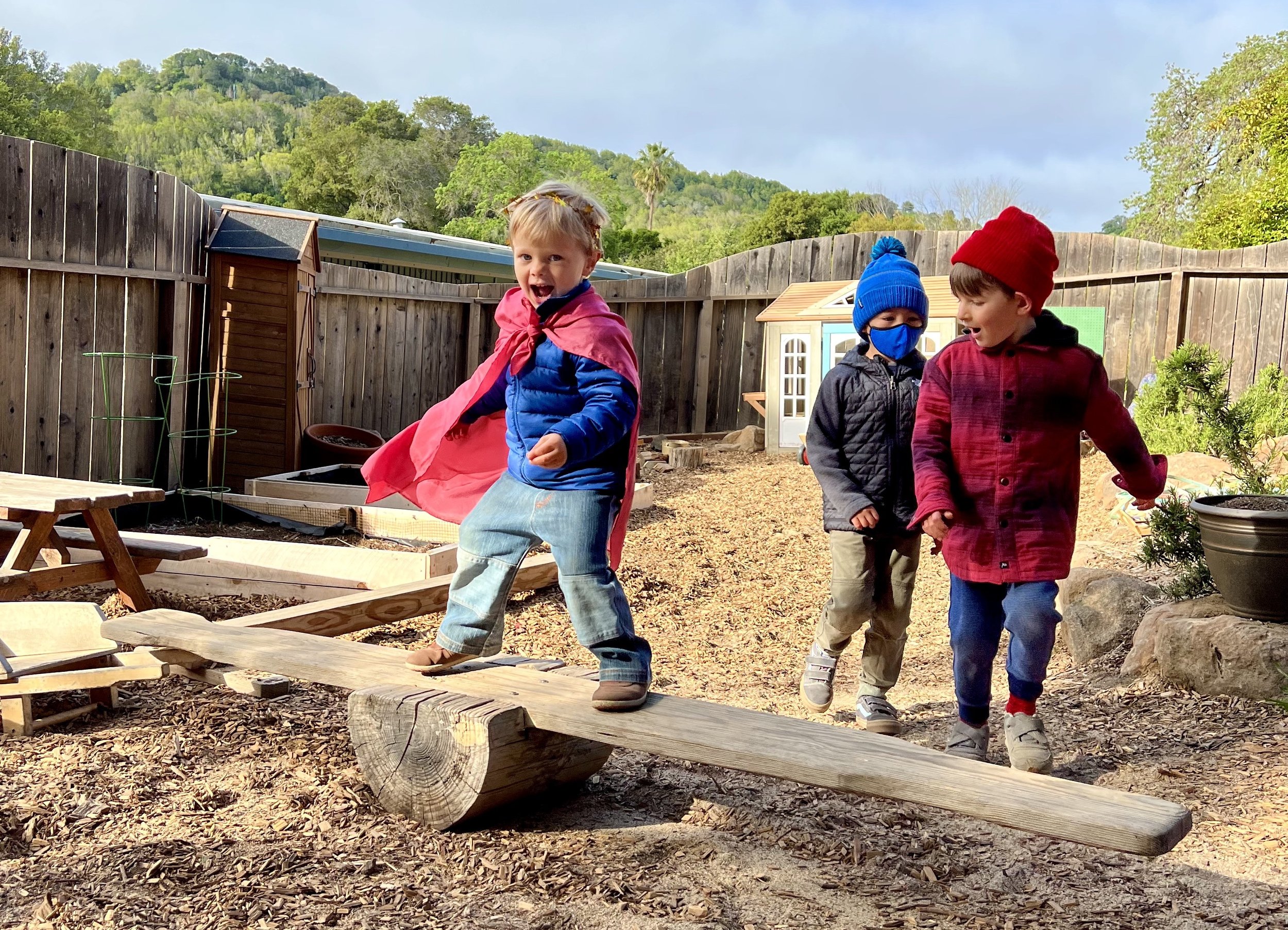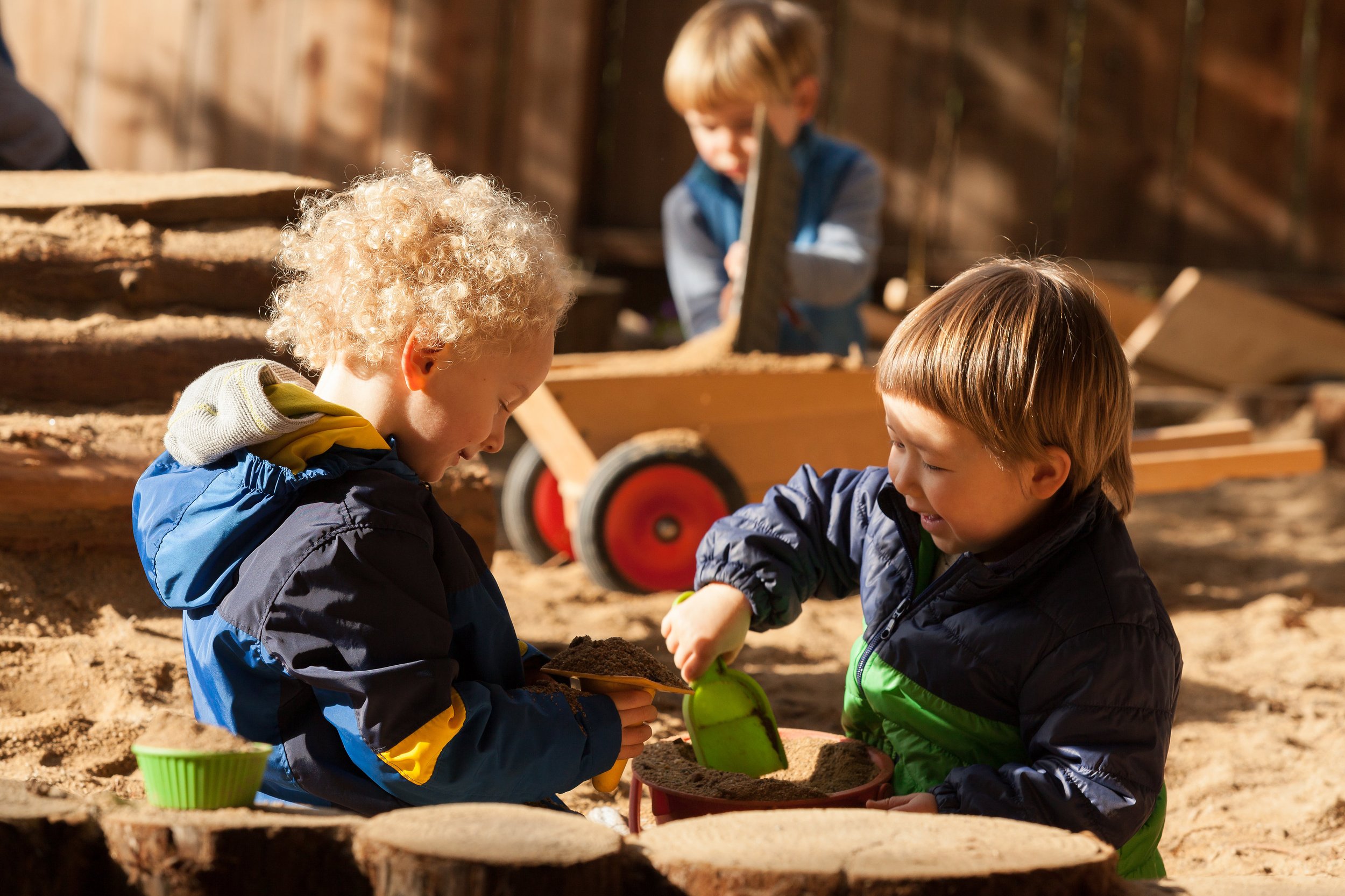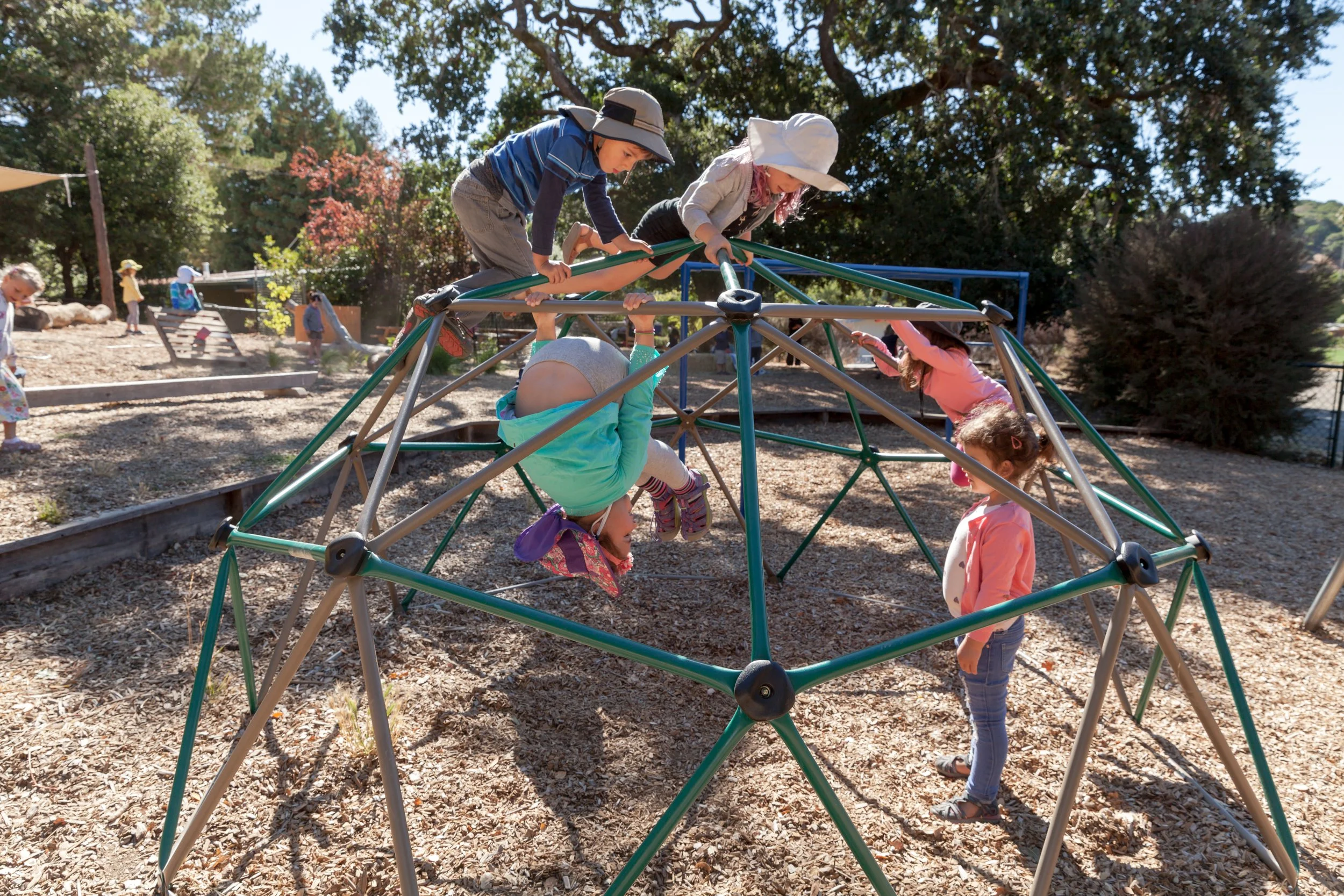Play in the Waldorf Preschool
At Marin Waldorf School, a play-based preschool program nurtures the young child’s natural curiosity and imagination.
All it takes is a set of wood blocks, a tree to climb, or a couple of friends. When given the opportunity, young children are naturally drawn into immersive, imaginative, and creative play. At Marin Waldorf School, imaginative play is at the center of the day’s activities—and for good reason. There is a wide breadth of research that shows unstructured play is essential to cognitive, physical, emotional, and social development in young children.
The American Academy of Pediatrics released a clinical report in 2012 outlining the fundamental importance of play. “Play offers more than cherished memories of growing up, it allows children to develop creativity and imagination while developing physical, cognitive, and emotional strengths,” the AAP wrote. Childhood play is even linked to a longer life expectancy!
Play Encourages Cognitive and Brain Development
Play naturally stimulates a child’s neural pathways, encouraging healthy cognitive and brain development. Specifically, researchers have found that free, unstructured play builds connections in the prefrontal cortex, the brain’s executive control center.
"The experience of play changes the connections of the neurons at the front end of your brain," says Sergio Pellis, a researcher at the University of Lethbridge in Alberta, Canada. "And without play experience, those neurons aren't changed," he says.
Play Builds Social Skills and Self-Control
Open House
October 18, 10am-12pm
Meet our wonderful preschool and kindergarten teachers, visit classrooms and playgrounds, and chat with current families at our annual Open House.
This is an all-ages, family-friend event! Sign up here.
From rocking on a seesaw to setting up a tea party, play is how children learn to interact with one another, building essential skills in cooperation, conflict resolution, self-regulation, and communication. Crucially, these skills continue to serve the child for years into the future, with research showing that children who engage in unstructured play in the toddler and preschool years had better self-regulation abilities at ages 4–5 and 6–7 years.
Play Supports Physical Health
Skipping, jumping, swinging, grasping, stacking, balancing! Play helps young children develop both fine and gross motor skills while exploring their own interests and imagination. Play is also a natural opportunity to promote movement and physical expression in children—which has benefits for body, heart, and mind!
In May 2025, an article published by UNICEF shared, “Children are also more likely to take risks when they are playing outdoors – think climbing trees, or jumping from a height. A growing body of research has found that this kind of risk-taking outdoors not only helps children get the physical activity that they need to be healthy and strong, but promotes children's resilience, creativity and their social skills.”
Play Develops Problem-Solving Skills
They also learn to develop important problem-solving skills, by thinking up solutions to their own problems, like how to stack a pile of boxes and sticks to build a fort. In an article in the journal Pediatrics, the authors explain, “When play is allowed to be child driven, children practice decision-making skills, move at their own pace, discover their own areas of interest, and ultimately engage fully in the passions they wish to pursue.”
Play Supports Language Skills & Literacy
There is ample evidence that children’s literacy and communication skills are developed during play. In fact, research indicates that children use their most advanced language skills while playing, which in turn supports literacy skills taught in the classroom.
“When children play and communicate through play, they are learning how language works and gaining an understanding of how to interact with other people. Eventually, children connect the meaning of spoken language to written language, which is the key to success in school,” says a study published in the Journal of Inquiry and Action in Education.
Get to Know Marin Waldorf School
Give your child the gift of play! Learn more about Marin Waldorf School’s approach to preschool and kindergarten at our annual fall Open House on Saturday, October 18. More info & registration here.
Learning to Learn: How We Prepare Preschoolers for Elementary School Academics
Nurturing pre-academic skills during preschool and kindergarten leads to confident and curious learners in elementary school and beyond. At Marin Waldorf School, our preschool and kindergarten programs carefully nurture the young child’s natural curiosity and capacity for learning. Learn more about how our teachers foster essential pre-academic skills in preschoolers and kindergartners.
More Research on Play
There are extensive studies on the power and importance of play in early childhood. We encourage you to read more below!
“Scientists Say Child's Play Helps Build A Better Brain,” NPR, 2014
“Learning through play: Strengthening learning through play in early childhood education programmes,” The LEGO Foundation in support of UNICEF
In Elementary Classrooms, Demand Grows For Play Based Learning, KQED, 2022
“Why Play = Learning,” Encyclopedia for Early Childhood Development, 2008
“The Importance of Play in Promoting Healthy Child Development and Maintaining Strong Parent-Child Bonds,” Pediatrics, 2007
“Developing Literacy through Play,” Journal of Inquiry & Action in Education, 3(1), 2009
